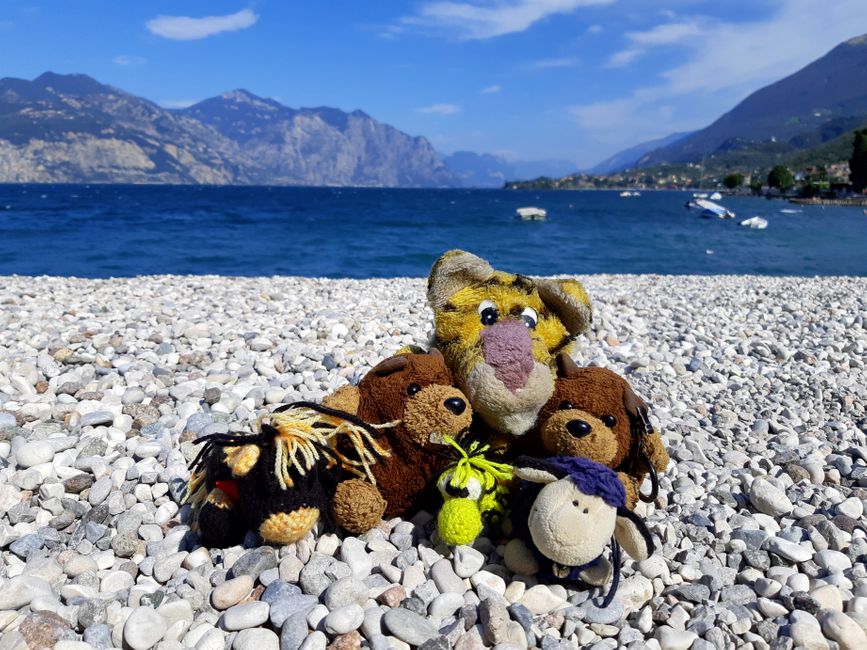
châteaugeschichten
vakantio.de/chateaugeschichten
Survival with the Little Tiger!!!
പ്രസിദ്ധീകരിച്ചു: 25.08.2022
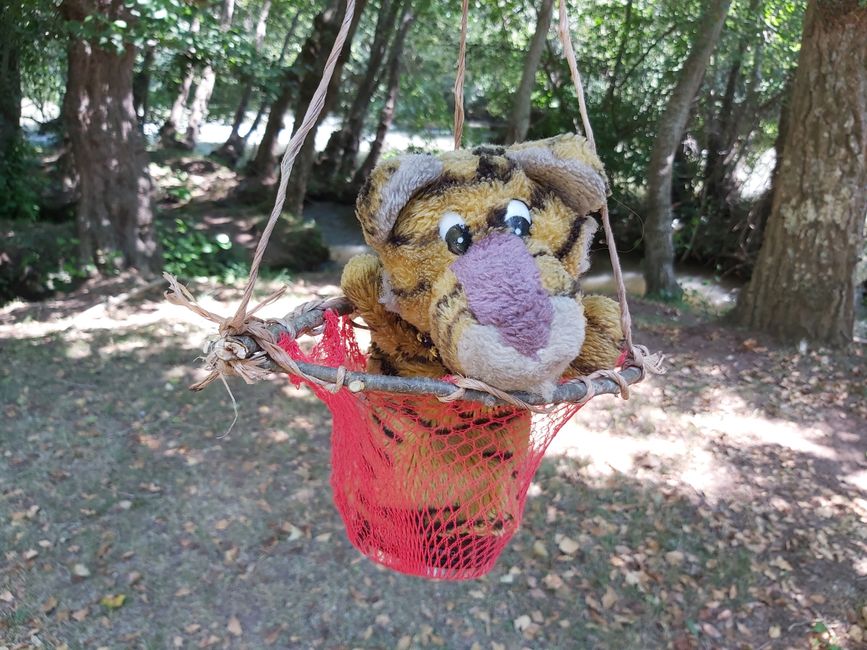
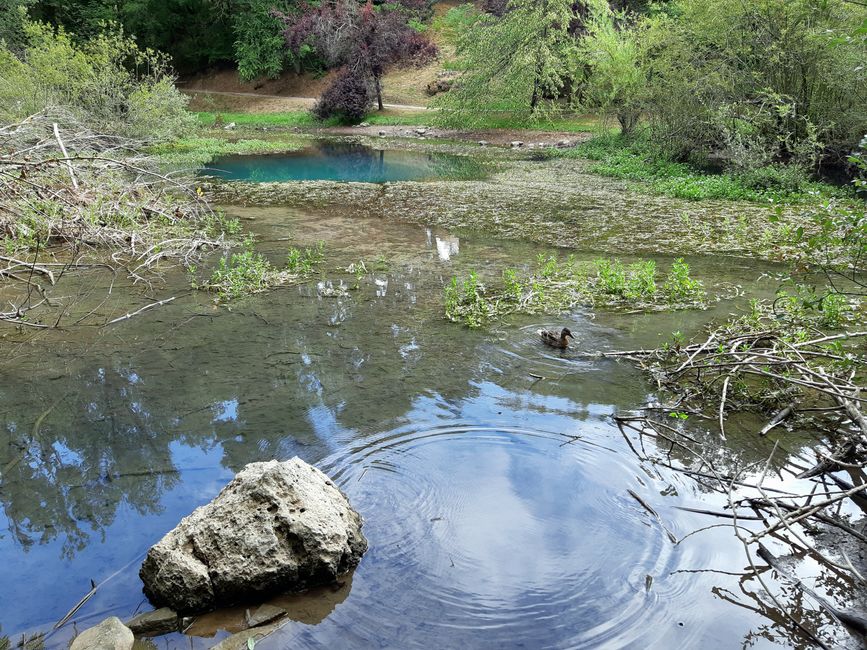
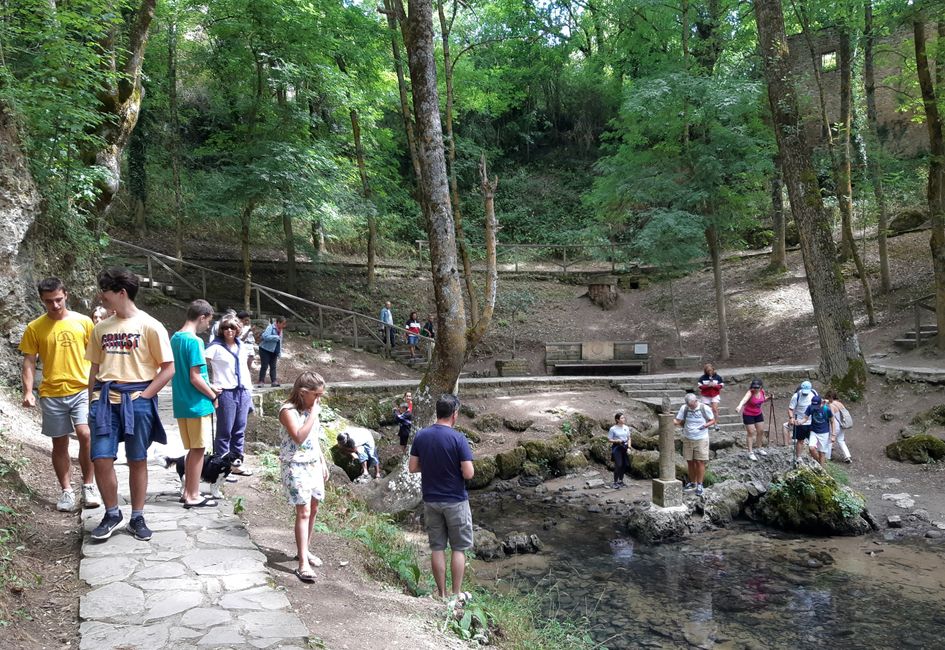
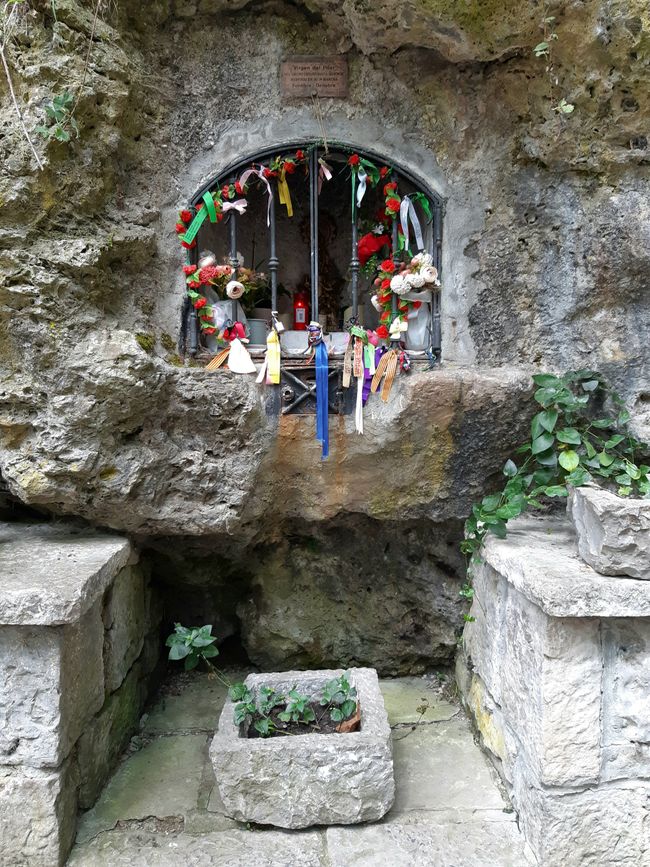
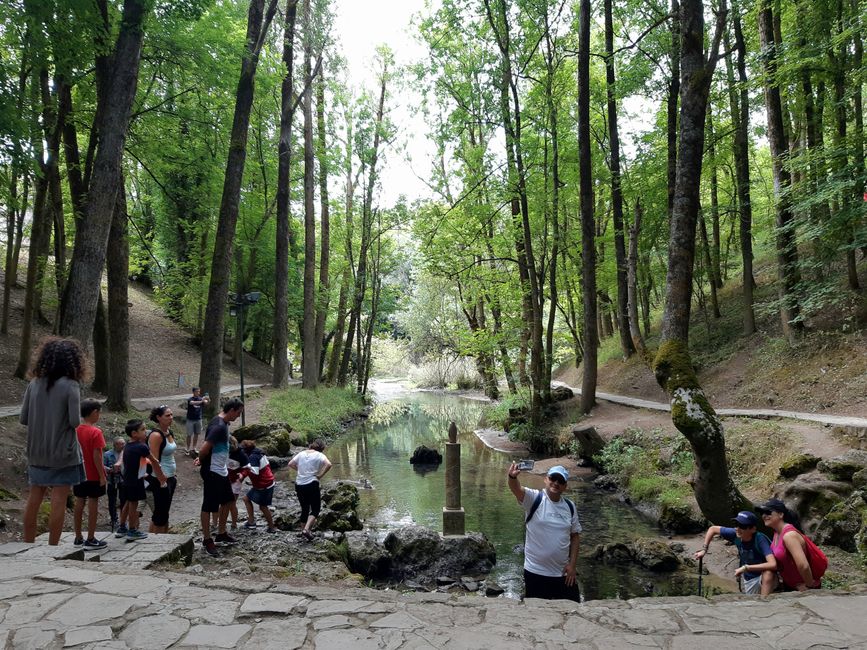
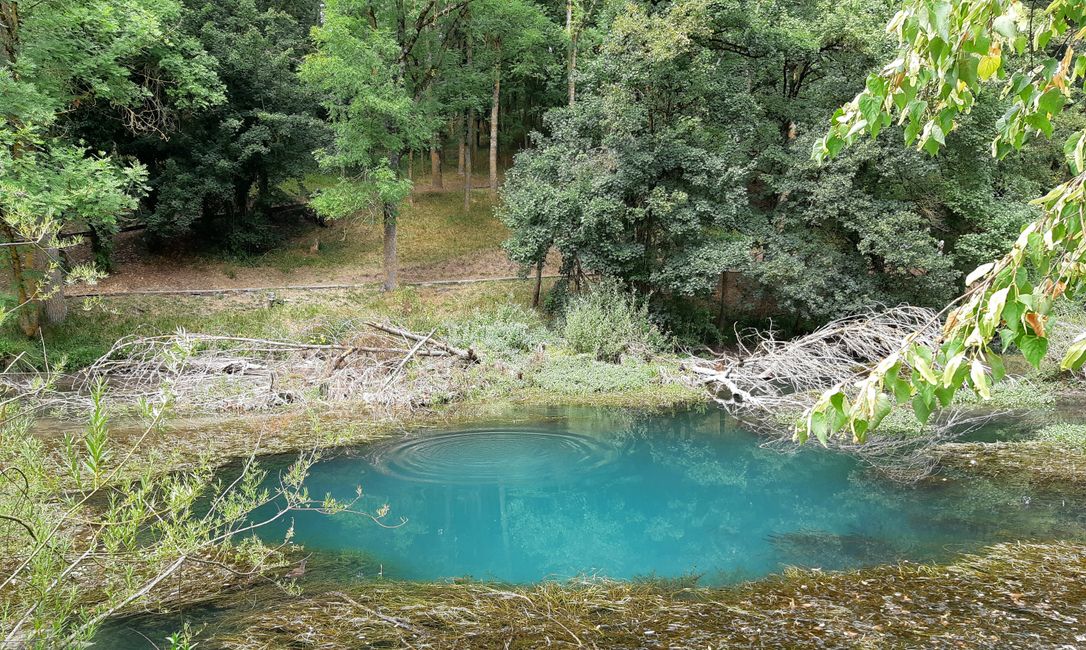
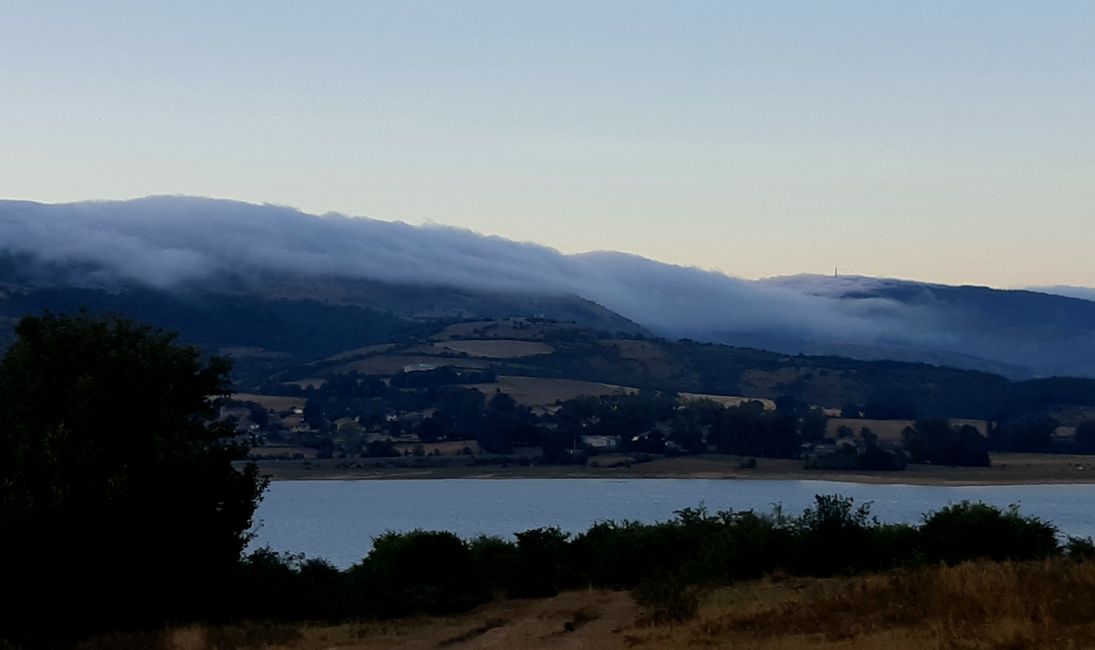
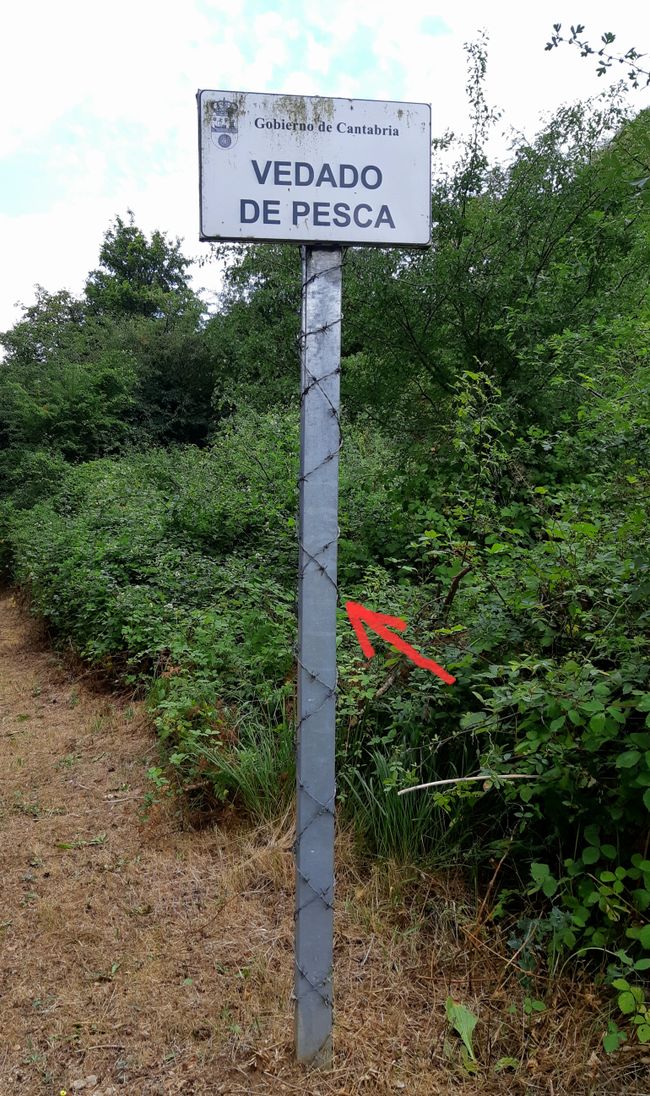
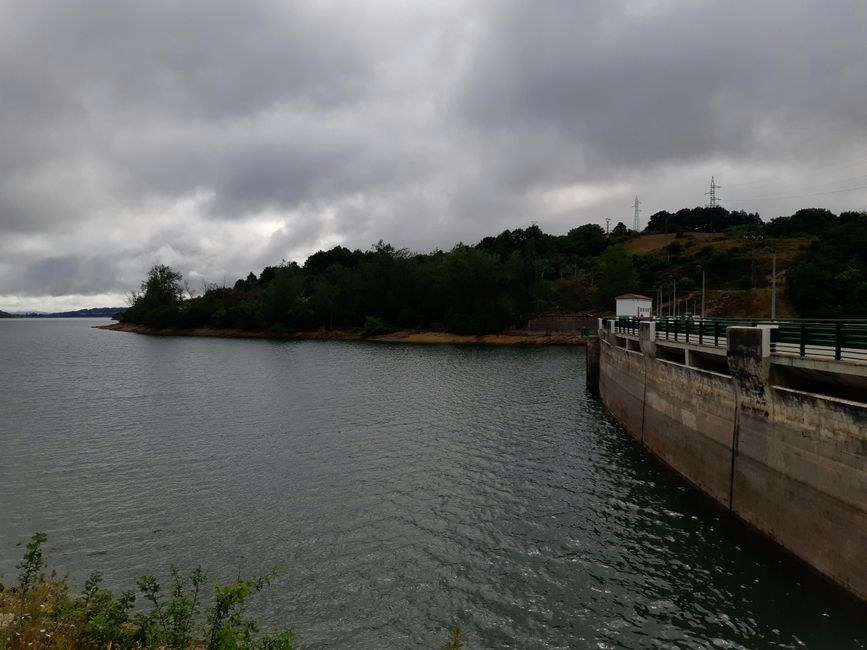
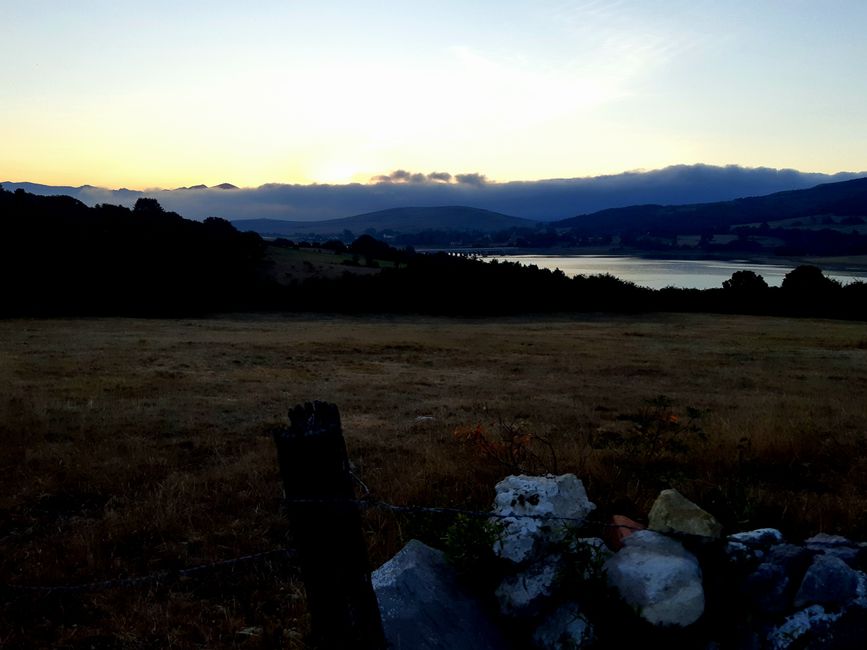
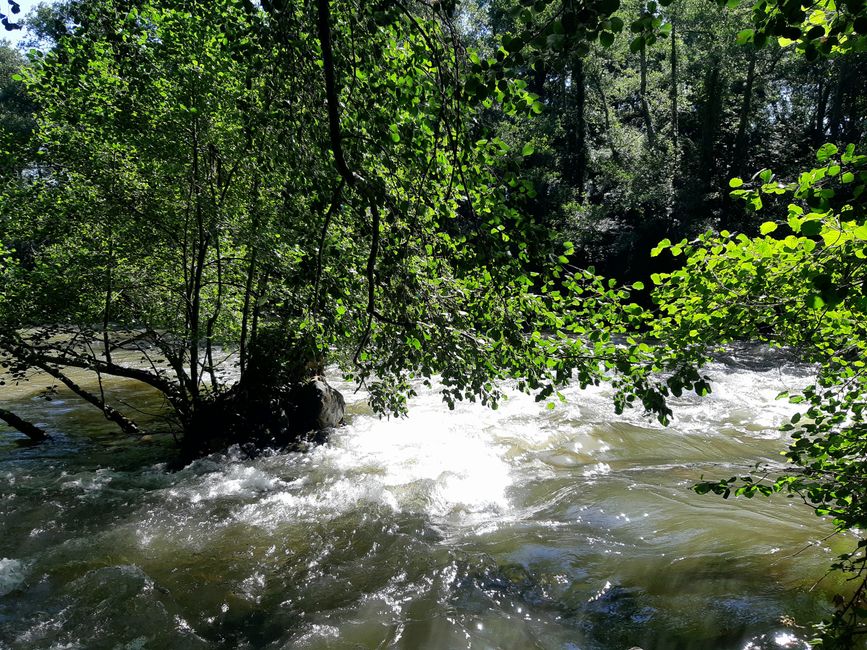
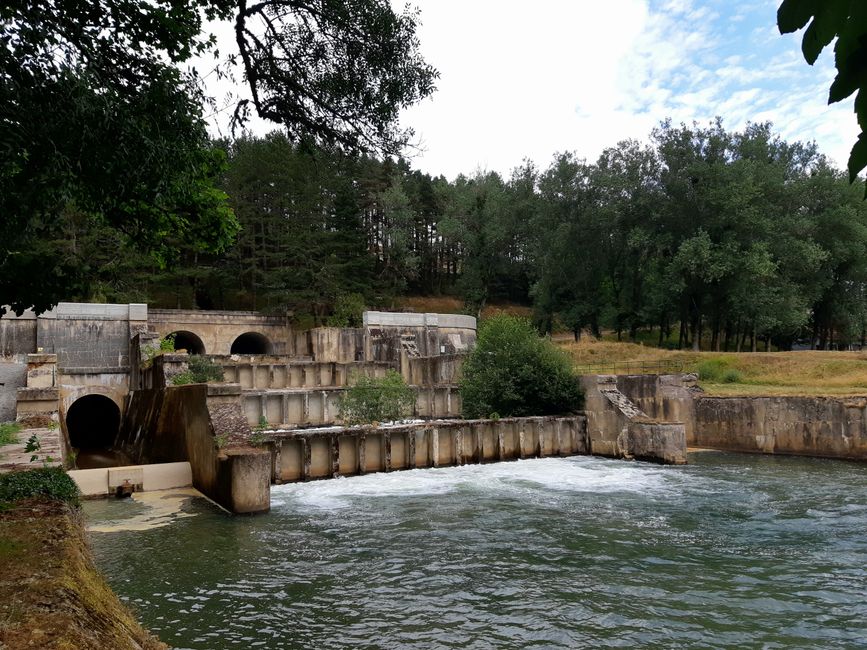
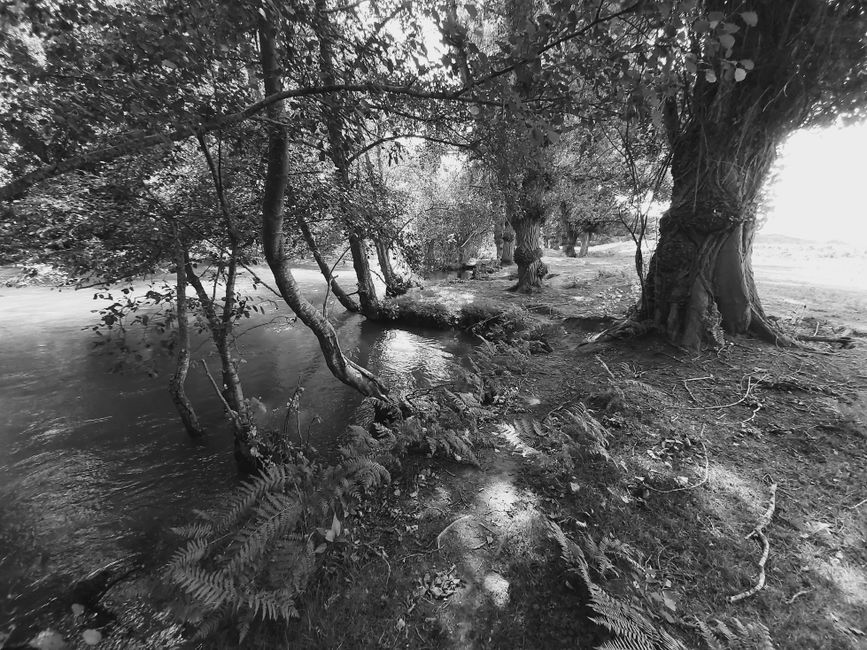
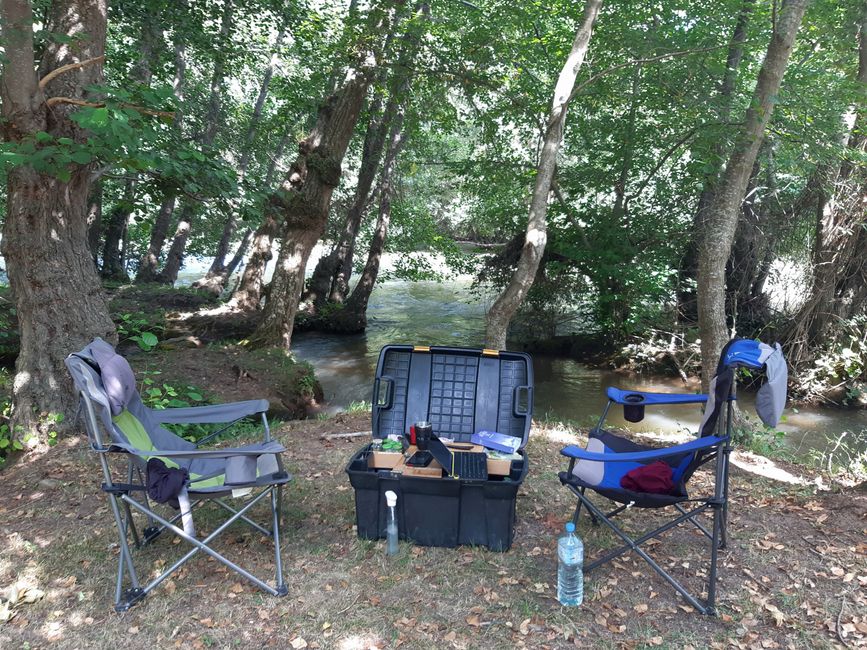
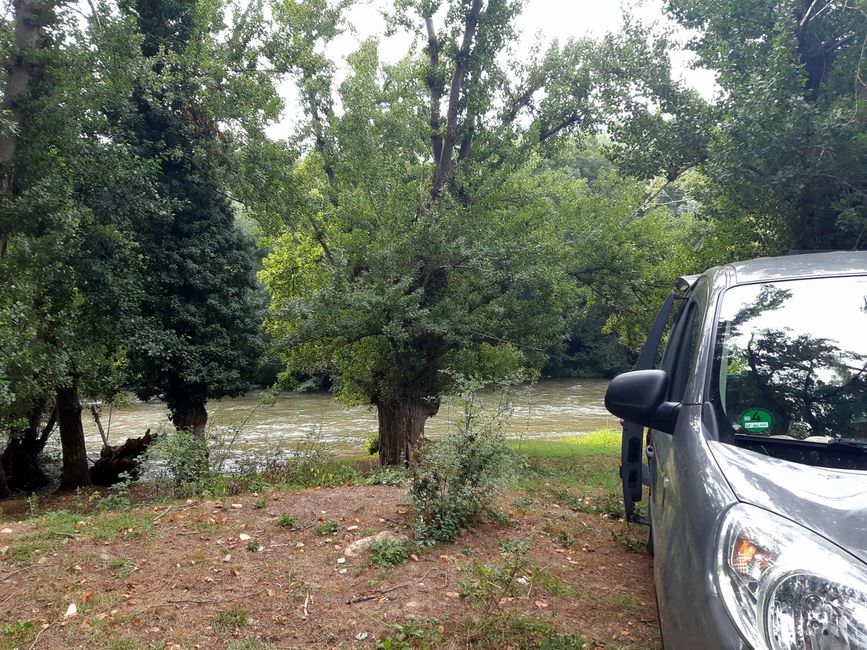
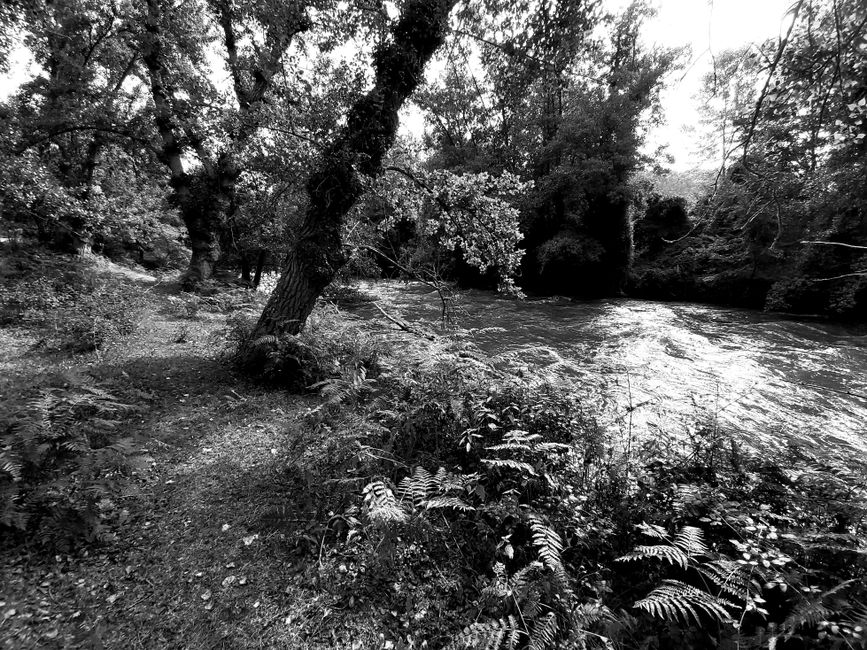
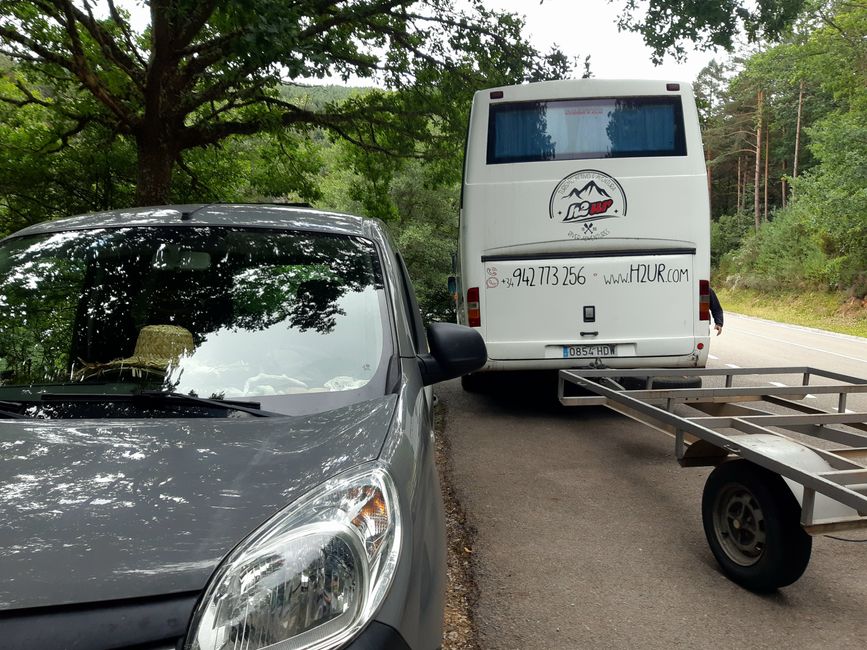
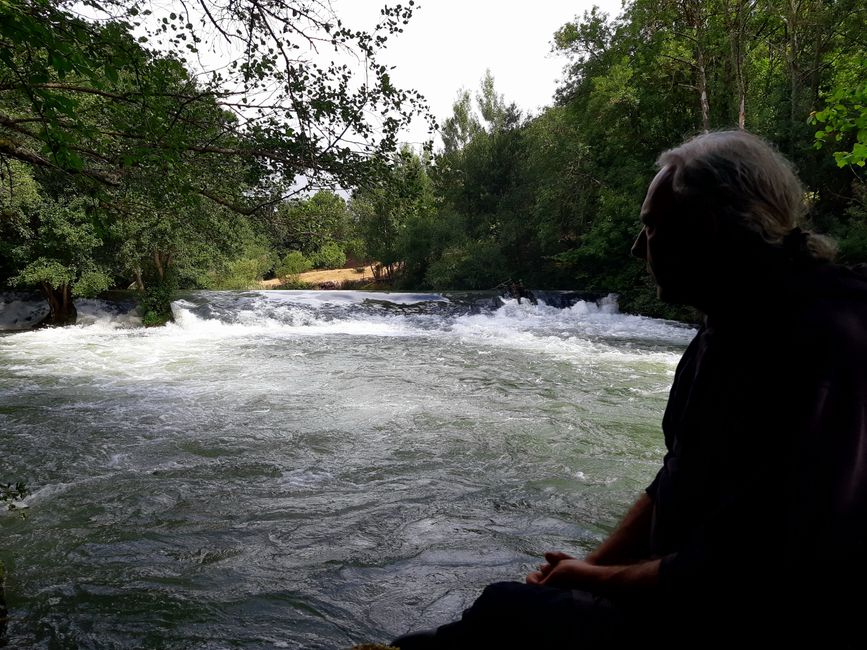
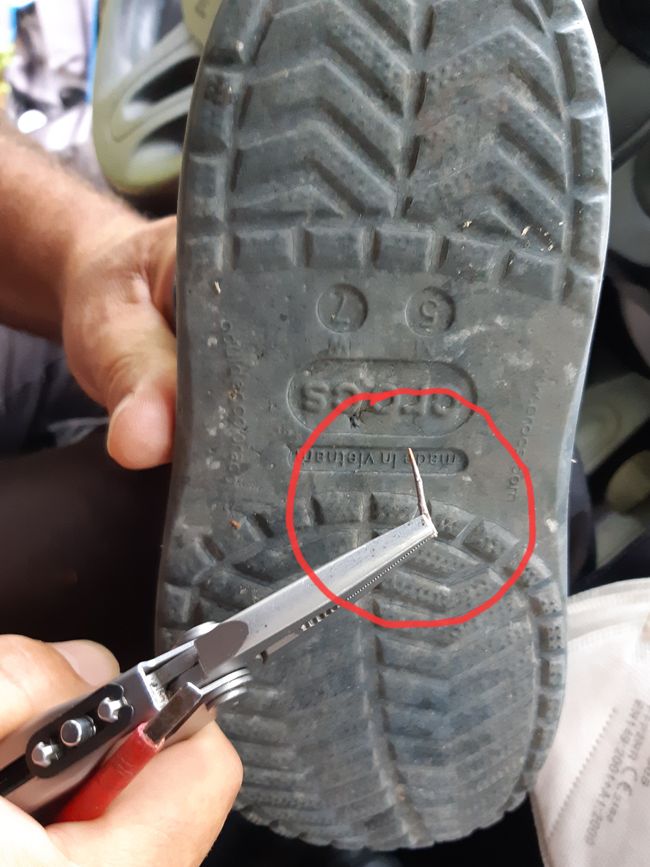
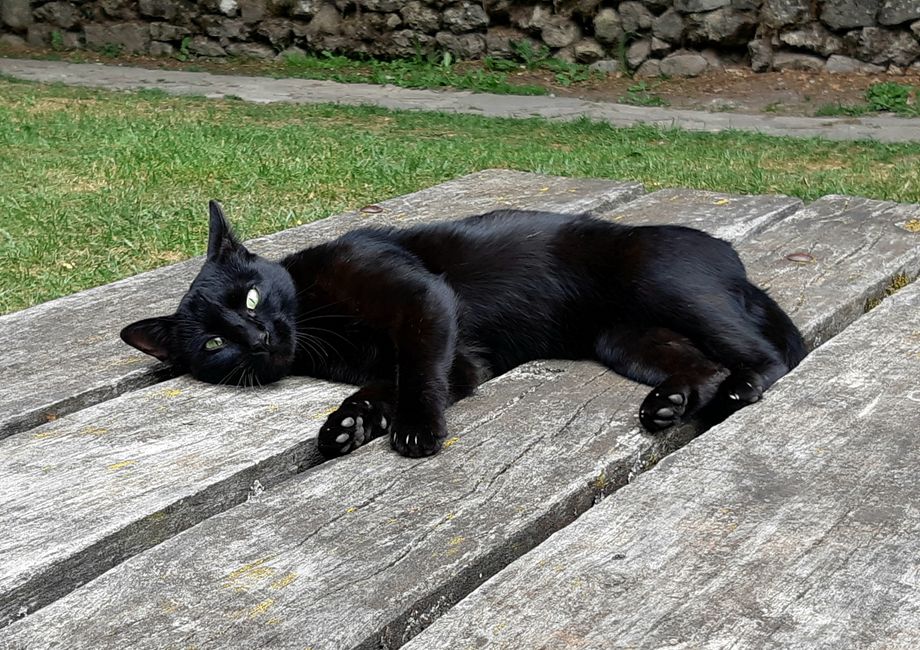
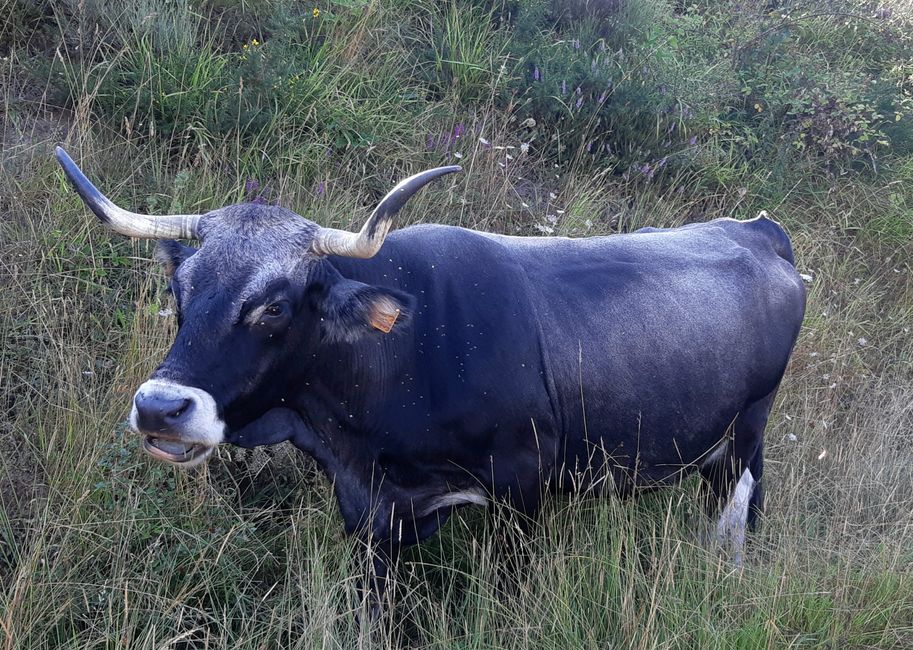
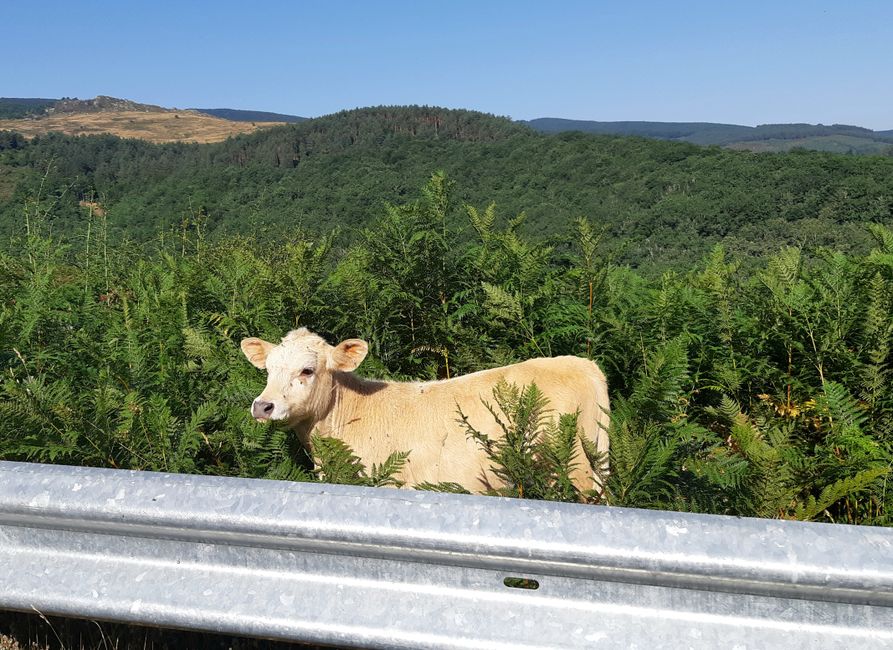
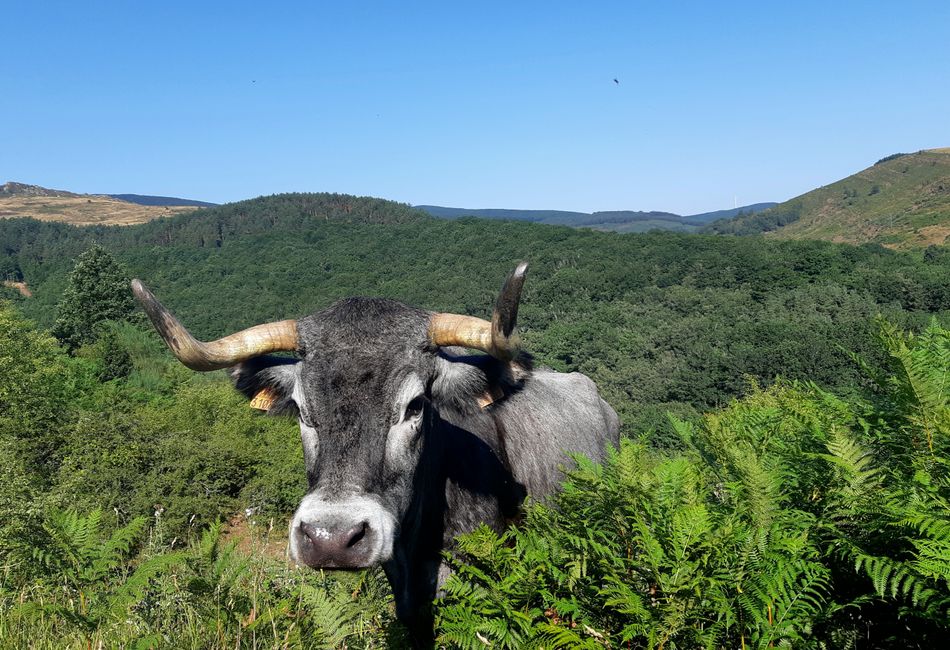
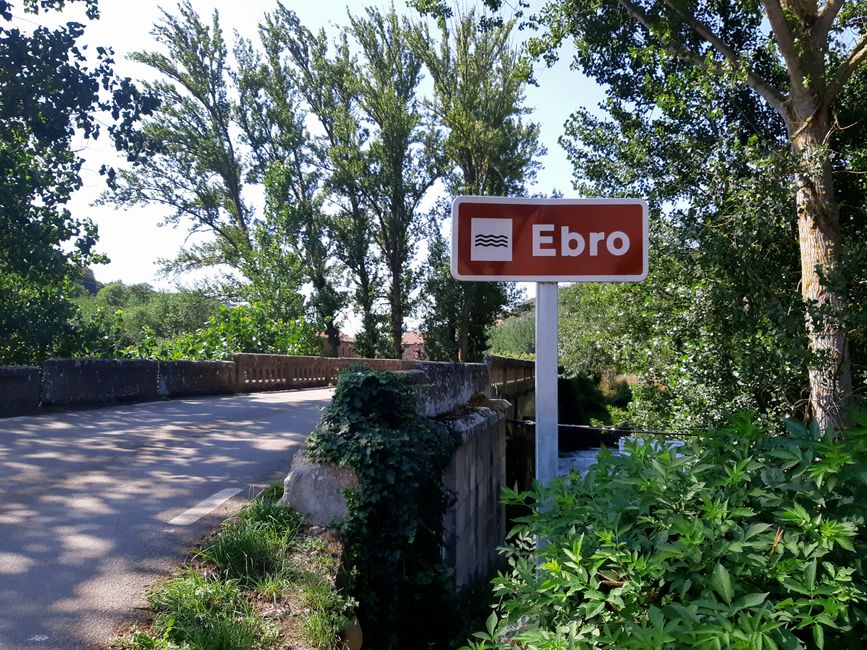
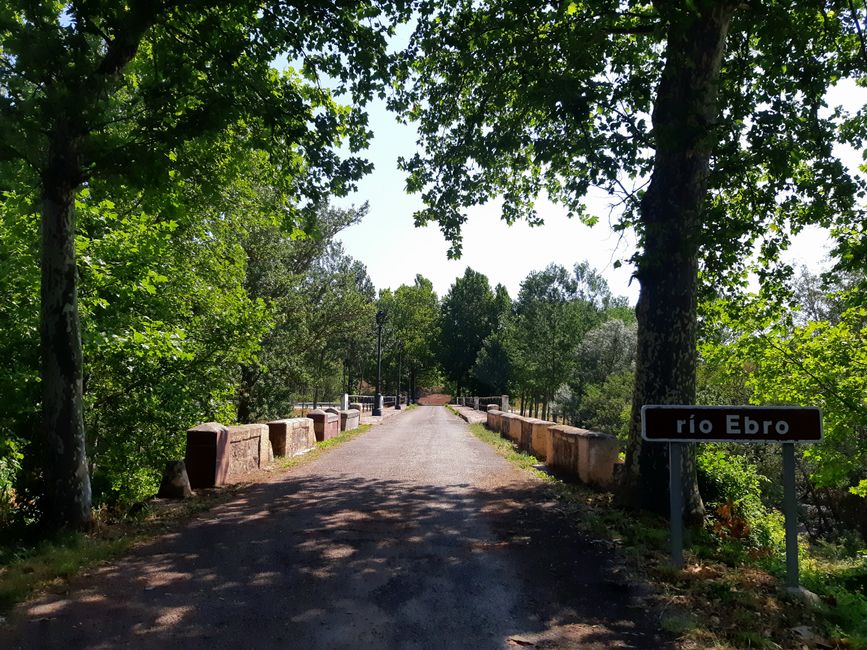
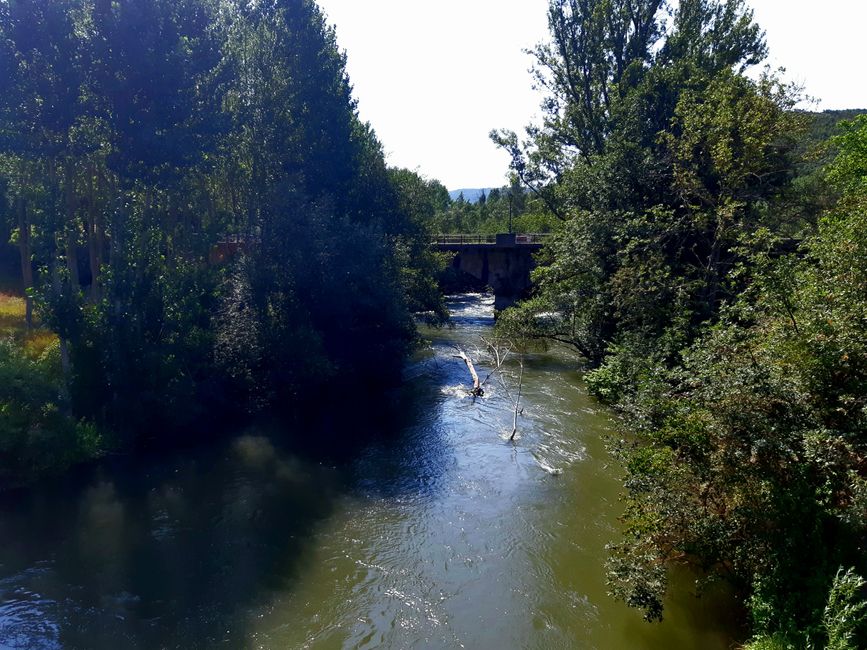
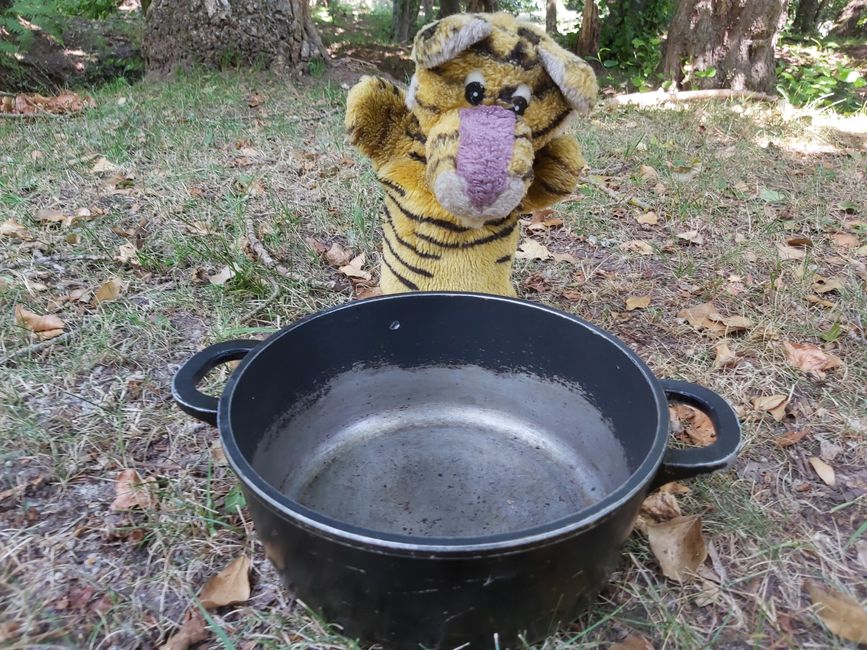
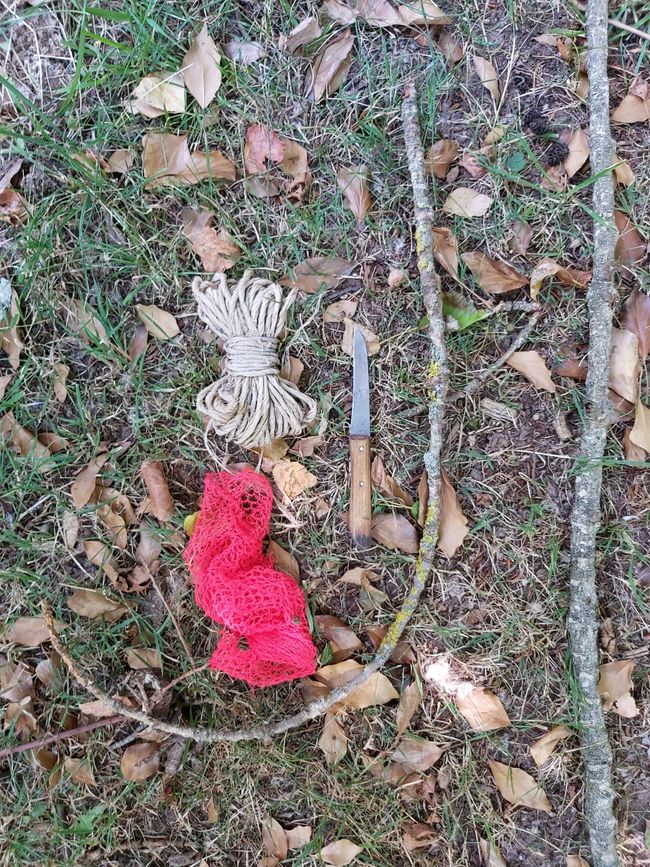
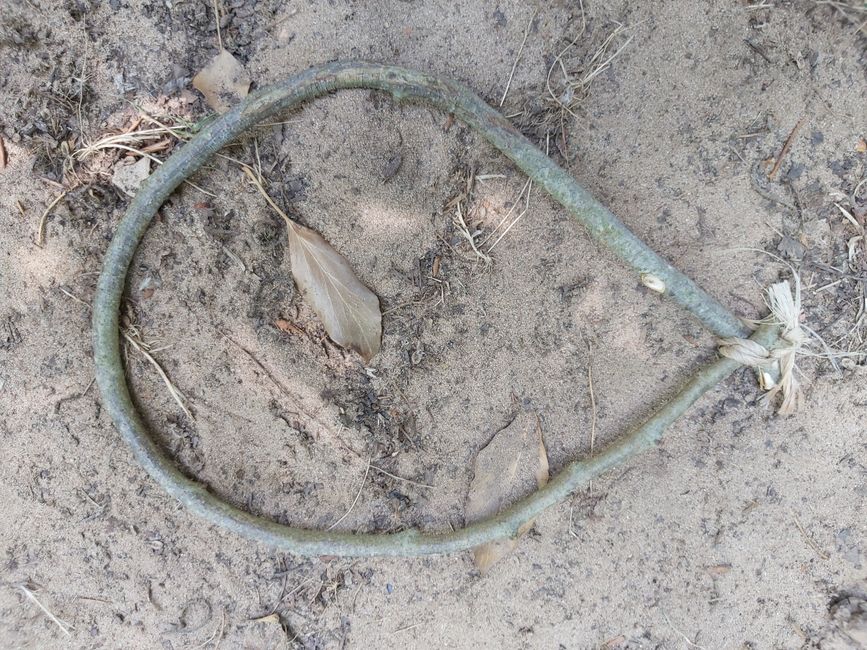
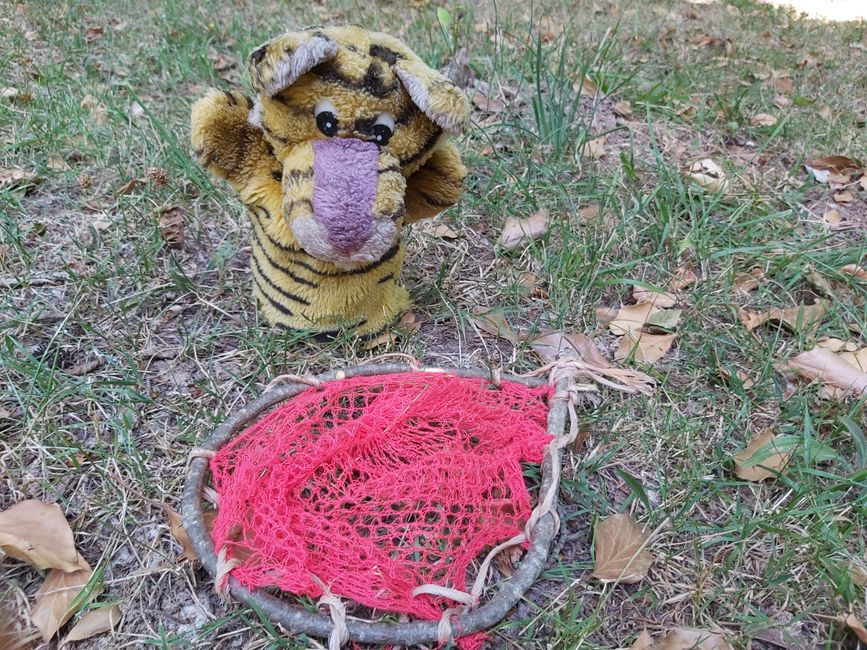
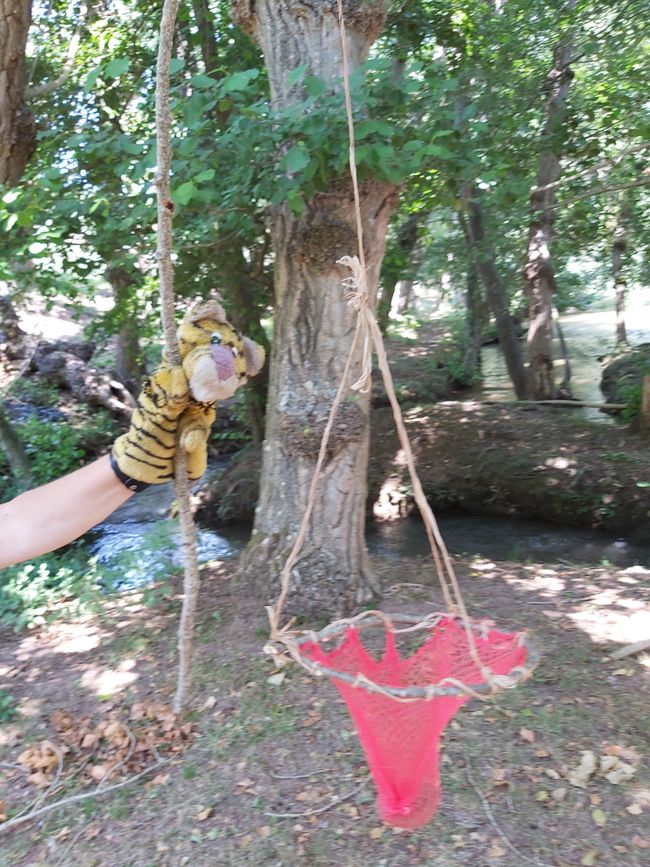
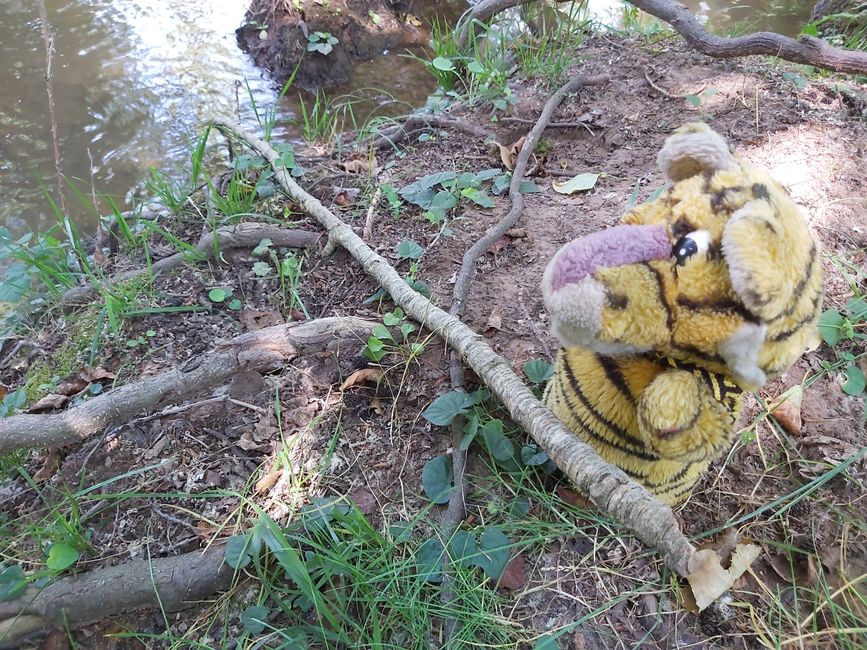
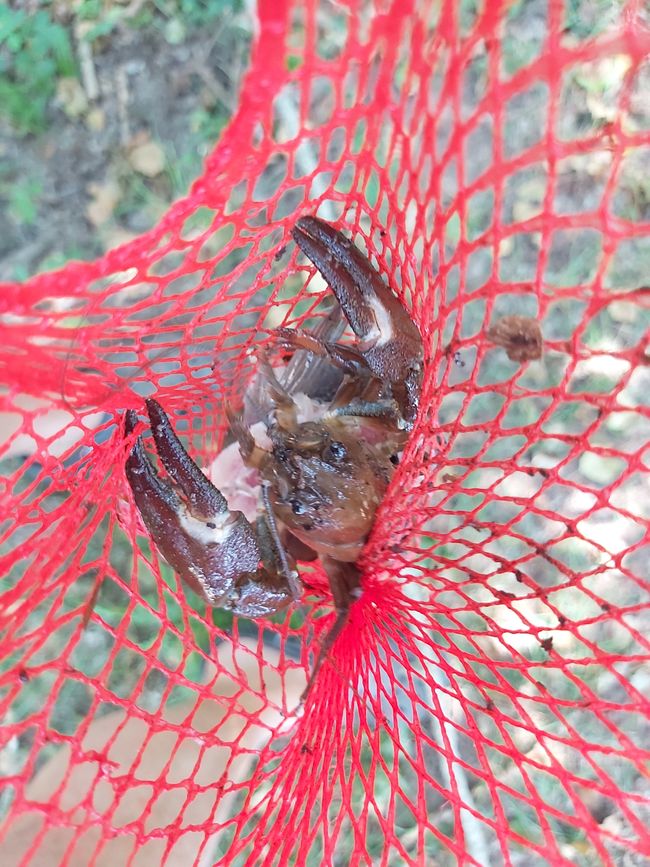
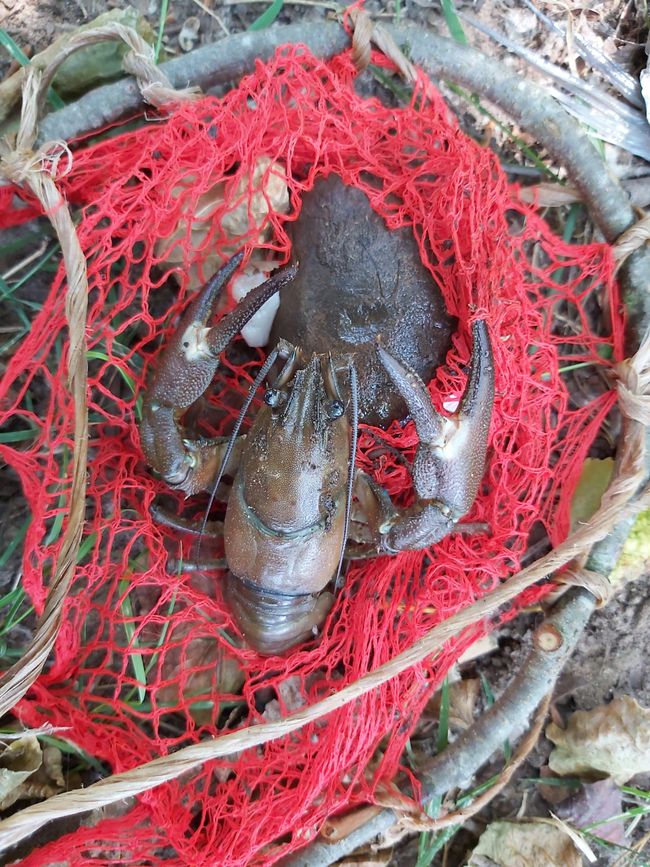
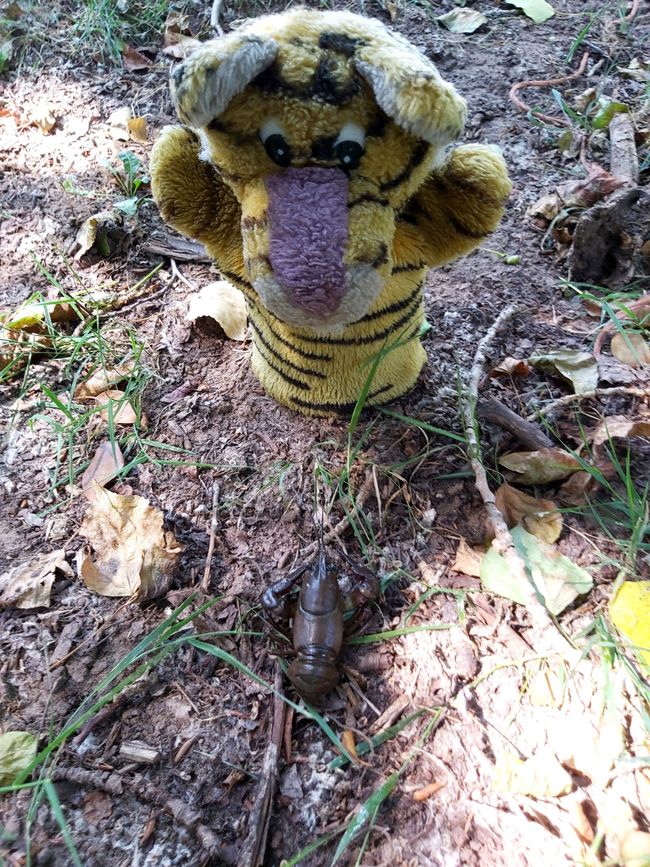
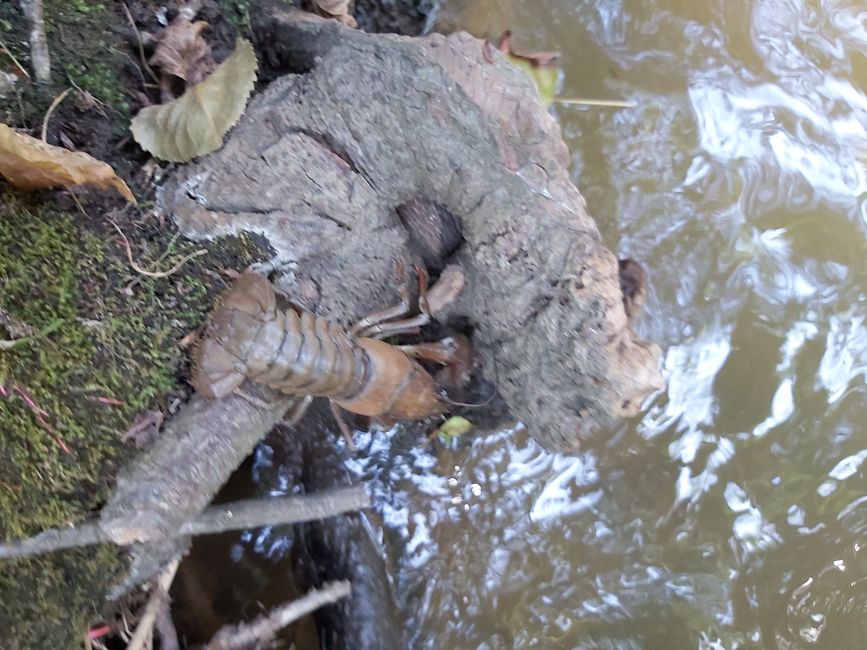
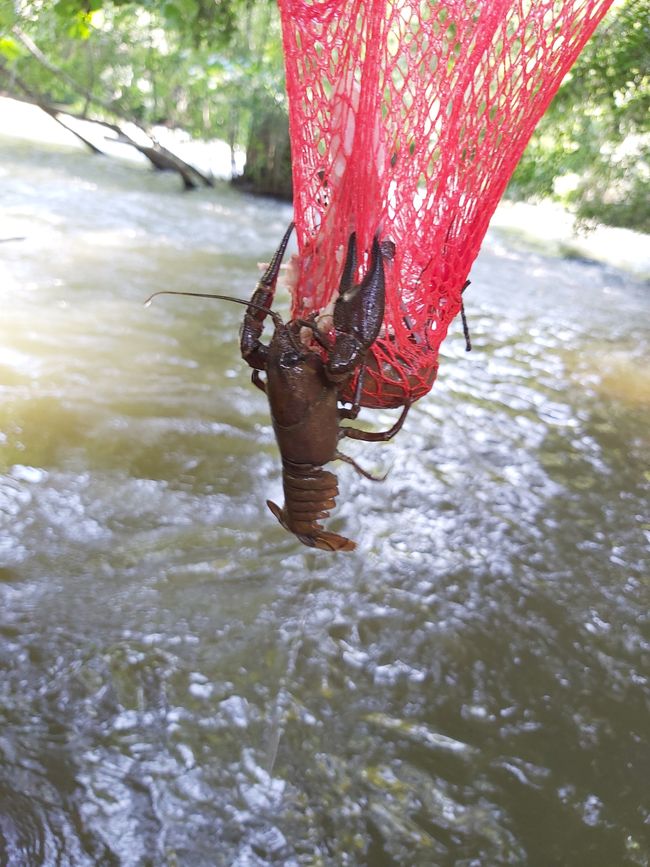
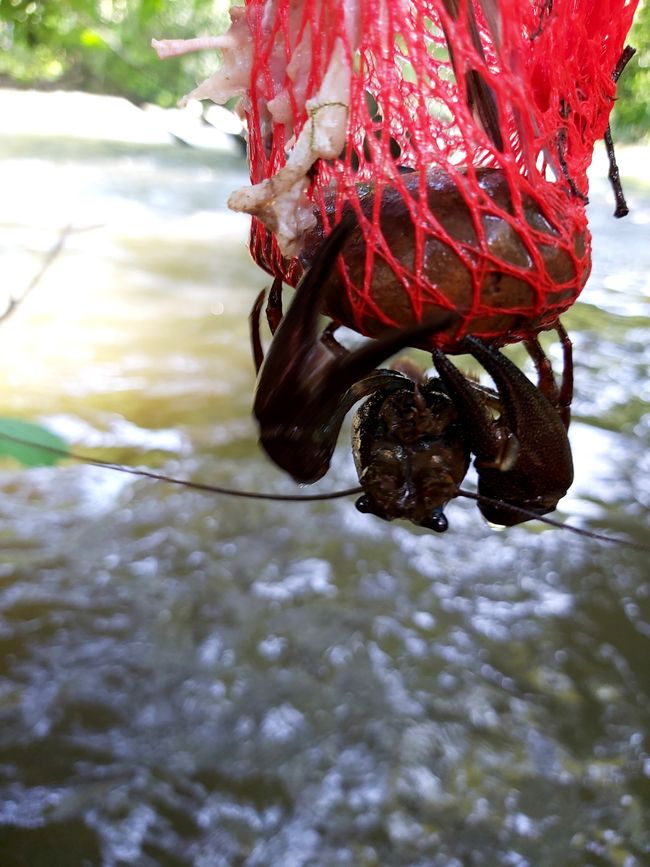
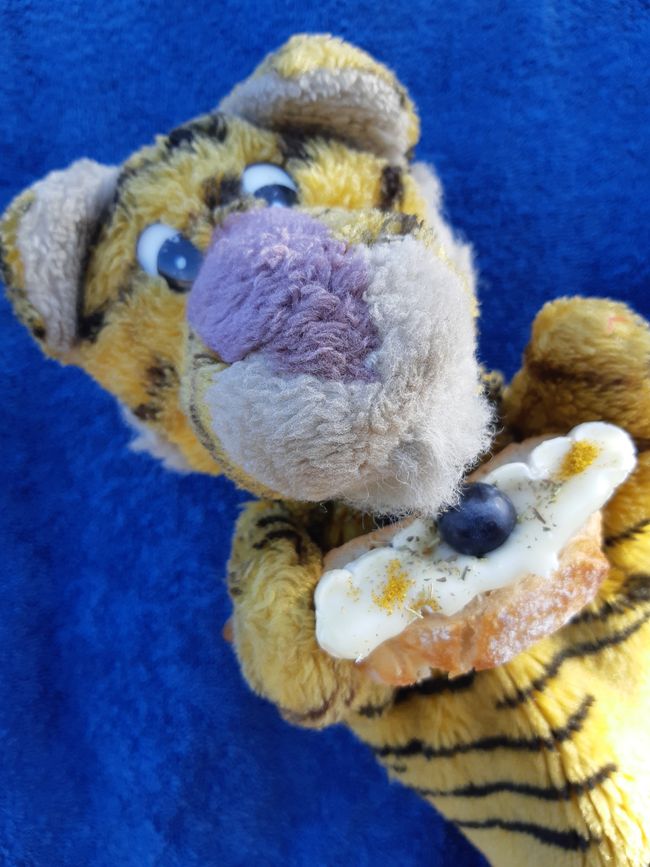
വാർത്താക്കുറിപ്പിലേക്ക് സബ്സ്ക്രൈബ് ചെയ്യുക

The Ebro, with a length of 910km, is the second longest river on the Iberian Peninsula, which owes its name to the river, as I recently read. It originates from Pico Tres Mares in the Cantabrian Mountains at an altitude of about 1880m, then flows underground and springs out of Fontibre. Here, a family-friendly park has been created around a small lake with its associated patron saint.


We start our exploratory journey at the source. There is a relaxed hustle and bustle and it is always fascinating to see to what acrobatic feats people are capable of for a selfie with a hotspot.

After this sightseeing, our next destination is the Embalse del Ebro. After just a few kilometers, the river is dammed and forms an extensive lake. Often, the wind blows from the mountains over the flat water and the kite surfers come together for some sporting fun. We join the laid-back crowd, find a spot in the parking lot, and then walk to the shore.

The water is not cold and only reaches up to my knee. But the strong wind creates some notable waves on the Embalse, churns up the lake, and catches me completely off guard, leaving only my crocs-clad feet underwater. I'm familiar with this game, but who expects such freak waves in a depth of 50cm?
Zappa is laughing his head off, of course, helps me to get back on my feet, and we enjoy the refreshing swim after the hot ride.

Back at the bandit cave, we have concerns whether we will have a peaceful night among the party kiters, so we move a little further away.
While Zappa prepares another delicious meal as always, I observe with amazement that more and more campervans are leaving the parking lot. One car after another disappears from the scene. So, no fiesta tonight after all?
Right on time with the last vehicles, we finish our dinner and also pack up our tents. If all the kiter vans really leave the beach, it seems likely that overnight stays at the shore are not welcome.

A car waits at the cow gate to close it for the last campers.
Our neighbor apparently didn't notice the exodus and just stays there. His dog barked at us throughout the entire meal, which was not nice. That's why we leave him to his fate.

We follow the course of the Ebro at the southern end of the reservoir, which is no longer full in August. From the road, the old river channel is clearly visible again, meandering through the fertile land. When we reach the dam, it surprises us how little concrete can create such an immense reservoir like the Embalse del Ebro.
Afterwards, a considerable amount of water flows at a sometimes quite rough pace towards the Mediterranean. The slope must be considerable, the river rushes southwards with a roaring noise, then turns eastwards, winding its way through curves and wide loops, creating lots of whirlpools and making a big impression.

Many small places in the shade of old poplars and black alders allow travelers to take a rest.

Swimming is impossible, the raging current sweeps you off your feet even without crocs. Two providers offer guided rafting adventures, but I'm too scared for that. Zappa is not.

Toppled trees form small lagoons here and there, where we refresh ourselves. This is also where the crayfish live.
In the early evening, we have company at the bubbling river. Señor Mas and Señor Menos unload a lot of stuff from their small van: buckets, ropes, fishing nets, poles, and el Perro. Curiously, we interrupt the preparations for our dinner, which is probably taken in the middle of the day and much too early in Spanish eyes. No Spaniard sits down for a meal before 9pm.
But we stick to around 7:30pm, which is late enough.

So, what are the two men up to? They cut a large fish head into many pieces and distribute them in the nets. These are then attached to the line and sunk at different spots in the water. After just a few minutes, the nets are pulled up again. And behold, there are two or three crayfish in them.
They go into the buckets. The still very young dog is tied to a bush to guard the catch, but he's completely overexcited and squeaks incessantly at his master. And how could the crayfish escape from their prison anyway?

When we finish our meal, Señor Mas and Señor Menos also finish their hunting. They proudly show us the result, the bucket is teeming with crustaceans. It's almost full enough for the first ones to escape again. We do have some sympathy for the arthropods, as they are now destined for the cooking pot.
We observe the crayfish catchers on the Ebro again and again. We meet the two Señores once more, this time they have left el Perro at home. And of course, Zappa wants to have his own experience. He has been dreaming of catching such a trophy since Normandy.

During the next shopping trip, he urges me to choose the organic tomatoes. I soon realize that he needs the bright red net for his crayfish trap.
DIY instructions, field reports, empirical research results on the feeding and social behavior of crayfish, success stories, and details of setbacks can be found here in words and pictures. Stay tuned!
Oh, and there were no crayfish in our pot, they were only there for a photo shoot.
The Great Survival Guide of His Little Tigerness in Words and Pictures:
1. Big wild cat hunger!
2. Take: a long stick, a thin stick, a survival knife, a piece of string stolen from the cow pasture, the red organic tomato net.

3. Bend the thin, elastic stick.

4. Attach the net to the bent stick with the cow pasture string.

5. Test the durability!

6. Attach the net to the long stick and put crayfish bait and a stone for weighting inside.

7. Lower the net into the Ebro and wait.

8. Retrieve the net and admire the catch.


9. Have a conversation in Spanish with the crayfish and let it return to the black and yellow-striped medal for its glorious achievements in the Tiger adventure and send warm greetings to the sharp mermaids in Neptune's realm. ¡Olé!


10. Look forward to a bocadillo con queso with fresh herbs and grape topping - ¡Que aproveche!

വാർത്താക്കുറിപ്പിലേക്ക് സബ്സ്ക്രൈബ് ചെയ്യുക
ഉത്തരം (2)
Kasi
😁Hobbit
Entweder ist seine Tigrigkeit janz schön jeschrumpft oder der Fluskrebs janz schön jroß!
;)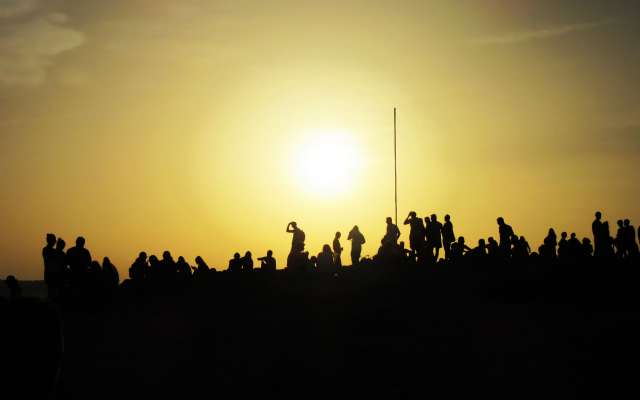
യാത്രാ റിപ്പോർട്ടുകൾ സ്പെയിൻ
